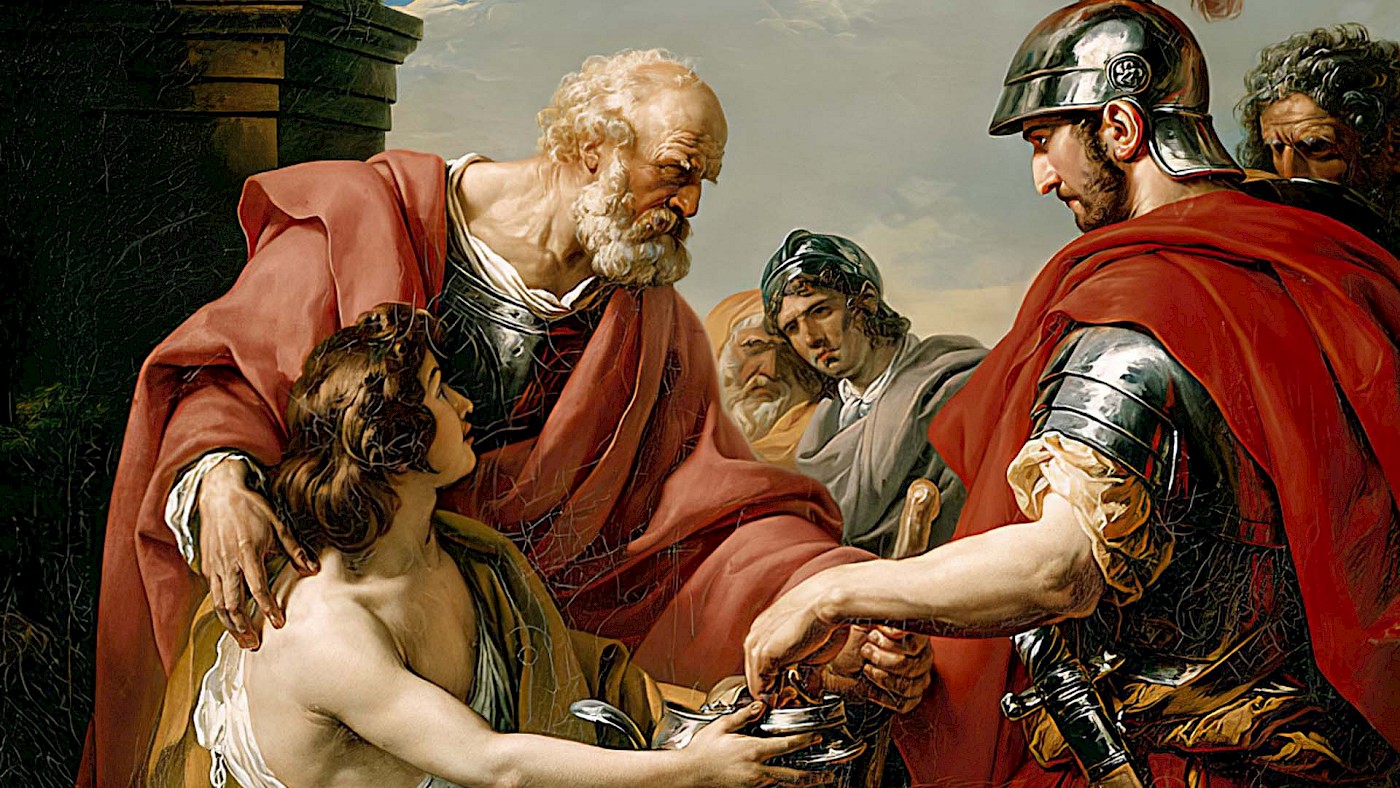The son of a lower-class freedman, Horace was educated in Rome and served in the Roman army in various capacities. This strict hierarchy of status in ancient Rome left him below many of his associates due to his family’s origins.
Nevertheless, Horace gained patronage and friendship from the aristocratic Maecenas, a wealthy man who sponsored the poet’s career. In the sixth poem of his Satires, Horace’s observations leave us with lessons relevant to multiple types of relationships, regardless of century.
I said who I was
Horace describes his first encounter with Maecenas in frank terms, acknowledging his own lower status as defined by Roman society. Maecenas is the prince and Horace the pauper, at least in Horace’s eyes. Horace even talks about the discomfort he feels with those around him due to the division in status: “everyone pecks at me, the one born from a freedman” (Sat. 1.6.46).
Still, when Horace meets Maecenas, he tells the reader: “I did not say that I rode around the countryside on a Sateurian horse, but rather, I said who I was” (Sat. 1.6.58-60). Horace does not choose to highlight his accomplishments, ignore his origins, or skew his status. He tells Maecenas exactly who he is, a daring move accentuated by the Romans’ high prioritization of class standing.
We may often feel a need to emphasize or brush away certain parts of ourselves when meeting new people. Horace serves as an example not only of the bravery of declaring his true self to another, but the gifts that can result. Maecenas later invites Horace to join his circle of friends and goes on to become his patron and close companion. In the poem, Horace address Maecenas and expresses gratitude for his acceptance “not by the fame of my father, but by the purity of my life and heart” (Sat. 1.6.64)
Whether dating, networking, or making friends, we are trained to focus on our positive qualities during these initial interactions. There is nothing inherently wrong with this, but we may emphasize the aspects that we believe others will value, rather than our true identities. By saying who he was, Horace not only gained a friend, but a patron who supported him to follow his passions. Horace reminds us that authenticity serves not only our relationships, but also our ambitions.
Sometimes, less is more
Horace offers readers a vignette of his simple life in the city, which ultimately grants him freedom that those with higher status cannot always enjoy. Horace is by no means poor – he owns a mule and three slaves, typical possessions for Romans at the time – but he has less wealth and power than his colleagues. He emphasizes his modest lifestyle by comparing it to the multiple slaves, escorts, and obligatory social events that his peers have.
Unlike the other government officials who have constant companions, Horace writes “wherever I feel like going, I walk alone, I ask how much the vegetables and bread cost” (Sat. 1.6.111-12) He does not resent such routine activities, but views them as opportunities for personal freedom.
It is comforting to have a reminder that social pressure and status existed long before Instagram and Snapchat. Even in ancient Rome, Horace recognized the compulsion to conform to the lifestyle of the popular and wealthy. By embracing simplicity as a means to freedom, Horace shows us the opportunity for adventure and personal growth that can accompany missing out on social events. While he still maintains friendships with those close to him, Horace exemplifies joyful independence, emphasizing that being alone does not have to mean being lonely.
Romanticizing life for ourselves
We are used to romanticizing our lives in conversation and for social media, but how often do we romanticize it for ourselves? Horace’s work has survived the ages not only for his commentary on the human experience, but for his artful, luminous language. As a poet, Horace takes notice of the art enveloped in mundanity and romanticizes such simple tasks as going to the market and asking how much food costs.
We may trudge through the routines of our life and lose the romance of having places to go, people to talk with, and passions to pursue. Horace – and poetry in general – can inspire us to romanticize our lives so that we can find joy in those parts of ourselves we may think are boring or unmentionable. In result, we can honor our lives as they are and feel propelled to share them with others, truly embracing authenticity.
While Horace didn’t have Instagram, I’d like to think his posts might feature his trips to the market and daily walks, celebrating them not for what they could be, but just as they are.
